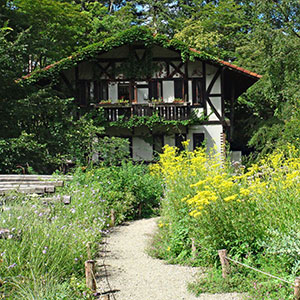Sharing ideas, building networks, learning skills
The social enterprise movement, in which the UK is considered a pioneer, encourages positive social change and inclusion, and supports civil society. To more broadly endorse such activities, the British Council is promoting increased international ties, encouraging the exchange of ideas, and promoting the broadening of experience through its Skills for Social Entrepreneurs project. This enables the council to support new approaches to social issues by developing partnership agreements, capacity building and a global network of social entrepreneurs.
The project was formally launched in Japan on 30 March, at a Social Enterprise Symposium organised by the British Council, Keio University, the Japan Foundation and Thinktank SophiaBank. The event gave leaders from Japan and the UK an opportunity to learn about the developments and challenges associated with social entrepreneurship in both countries.
Simon Tucker, associate director of the Young Foundation, Allison Ogden-Newton, chief executive of Social Enterprise London, and Stephen Bubb, chief executive of the Association of Chief Executives of Voluntary Organisations (ACEVO), shared some of the UK’s domestic experience regarding issues such as how the government, private corporations and the social sector (including voluntary and community groups, social enterprises and charities) cooperate, bearing in mind that there are an estimated 62,000 social enterprises employing around one million people.
Policy reform and collaboration were topics of particular interest to the Japanese audience that included ministry representatives, social entrepreneurs, academics and journalists. Minoru Yonekura, deputy director-general for regional economic and industrial policy at the Ministry of Economy, Trade and Industry, spoke on the scale and challenges of social business in Japan and discussed initiatives of the New Public-private Sector Round Table Body which proposes to open up, to grassroots organisations and citizens, public work opportunities in fields including education, disaster prevention, healthcare and welfare that are traditionally dominated by government.
The presentations were followed by a lively debate among the speakers and leaders in the areas of social enterprise and corporate social responsibility. Participants then attended a reception at the British Embassy, at which Ambassador David Warren gave the opening speech before the toast by Princess Takamado.
The symposium was streamed live online and watched by about 1,000 viewers, with tweets reaching more than 13,000 people whose comments were carried live on the social entrepreneurship website. This site was launched in February, when the British Council aired the Great Debate–an online discussion concerning pressing issues in social development that was facilitated by Gerard Lemos, former acting chair of the British Council.
In February, seven Japanese social entrepreneurs and a journalist visited London to meet representatives of the UK Cabinet Office’s Office of the Third Sector, which leads work across government to support the environment for a thriving social sector.
By providing aspiring social entrepreneurs the opportunity to exchange ideas and expand their networks, the British Council aims to build and enhance trust between people in the UK and Japan.
For more information: http://socialenterprise.britishcouncil.or.jp





